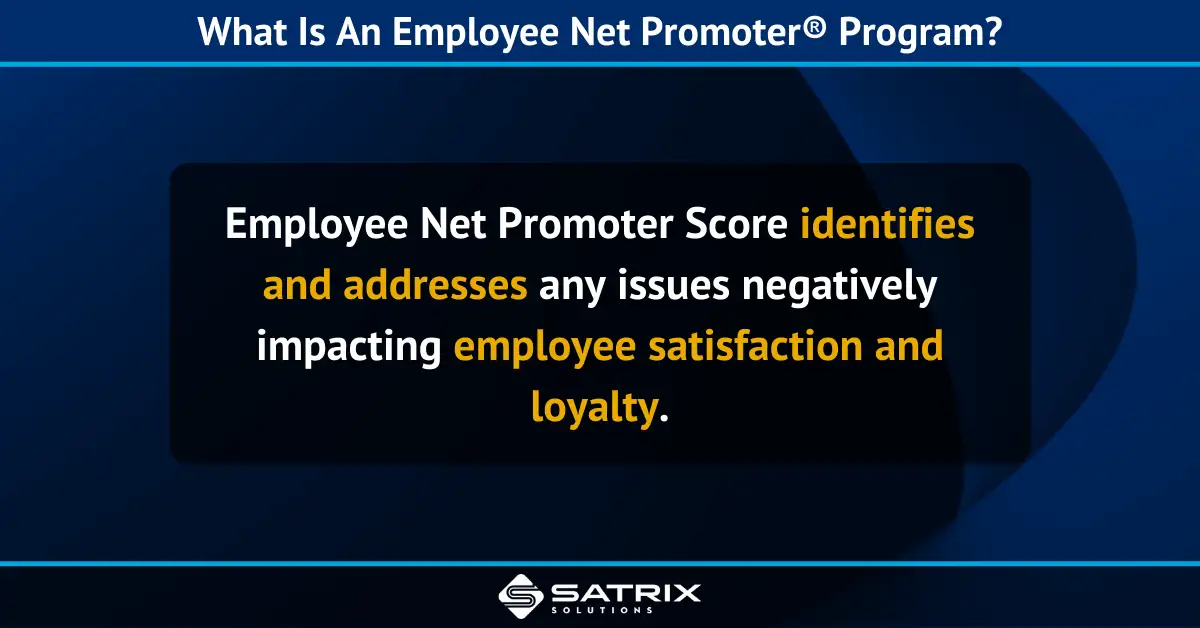A short but impactful survey, Employee Net Promoter Score, identifies and addresses any issues negatively impacting employee satisfaction and loyalty. Business leader and HR professionals are provided with the needed to build employee morale, develop managers, and instill confidence among the employee base.
Using an approach similar to Net Promoter Score for customers, the Employee Net Promoter Score (eNPS) Survey measures an employee's likelihood to recommend the company as a place to work and uncovers insights into the factors impacting the employee experience. Importantly, it’s an ideal tool for capturing the level of employee loyalty and encouraging honest and constructive dialogue between company leaders and their teams.
What is the Employee Net Promoter System?
Both an employee loyalty metric and organizational discipline, Employee Net Promoter Score (eNPS) is a widely used employee satisfaction measurement tool to monitor employees' enthusiasm about the workplace.
Employee Net Promoter Score helps quickly pinpoint and eliminate organizational trouble spots and enhance the employee experience. By continuously identifying and addressing employee frustrations, executives strengthen the company's reputation as a great place to work, thereby reducing attrition and attracting talent.
Additionally, research has shown that happy and engaged employees deliver a better customer experience, which results in more profitable customer engagements.
eNPS Survey Question & Calculation
How likely are you to recommend our company to a friend or colleague?
The Employee Net Promoter Score calculation is based on employee responses to a single question: "How likely are you to recommend our company to a friend or colleague?"
On a scale from zero to 10, employees who score a 9 or 10 are considered loyal enthusiasts or "Promoters" whereas those who score between 0 and 6 are considered "Detractors" and are more likely to leave and share negative word-of-mouth. Those who score a 7 or 8 are considered "Passives." The Net Promoter Score calculation is simply the percentage of Promoters minus the percentage of Detractors.
Why Employee Net Promoter Is Important
By systematically assessing employee sentiment, business leaders and HR professionals are able to pinpoint the source of employee frustrations and discontent. The data and insights gleaned are used to develop Managers, improve employee onboarding, enhance company culture, and strengthen employee communication.
Every employee also plays an important role in establishing a differentiated customer experience. Loyal and engaged employees tend to be more productive and exhibit higher levels of commitment to delivering a better experience for customers.

